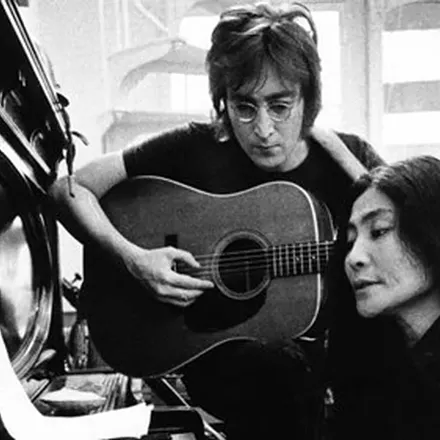Feature movie review: THELMA
Finding fun and complexity in the idea that you're never too old to be an action hero.
By Scott Renshaw @scottrenshawIn an early scene from writer/director Josh Margolin's Thelma, 93-year-old Thelma Post (June Squibb) and her 20-something grandson Daniel (Fred Hechinger) watch Mission: Impossible – Fallout together, and marvel at Tom Cruise's energetic action work as he dashes across the rooftops of Paris. It's a sly set-up for the rest of the movie, which becomes a kind of homage to espionage/action thrillers, only with the nonagenarian Thelma as the protagonist—and not, as it turns out, to make the idea look ridiculous. "I don't feel old," Thelma insists to Daniel, and Thelma the movie feels absolutely driven by that idea, in complicated and sometimes bittersweet ways.
The inciting incident involves Thelma receiving a phone call suggesting that Daniel has gotten into serious legal trouble, and requires $10,000 in cash to bail him out. As it turns out, the call is a scam, which Thelma only discovers after putting the money in the mail. But she's determined to get her money back, and sets off on an electric scooter journey across Los Angeles—accompanied by old friend and fellow retiree Ben (the late Richard Roundtree, in his final performance)—to find the thief.
The ensuing adventure is generally light-hearted, and built on a deep affection not just for Thelma as a character, but for the genre tropes it's bending at a cockeyed angle. Thelma's attempt to steal Ben's scooter turns into a variation on a car chase, even though the theater of action is limited to the hallways of his retirement home. An attempt to steal a gun from an old friend finds Thelma required to do little more than climb a flight of stairs and stand on a bed, but Margolin shoots it with the vertiginous danger of Cruise scaling the outside of the Burj Khalifa. When Thelma and Ben reach the home base of their target, they communicate like secret agents through the hearing-aid apps on their phones. It's a lively and charming way to play with movie clichés, right up to and including the ever-popular "slow walk away from an explosion in the background."
If Thelma had been nothing more than a golden-years riff on the M:I franchise, it still might have been plenty of fun. But Margolin is interested in why Thelma herself undertakes such an enterprise, even as she gradually realizes she may have bitten off more than her dentures can chew. In one particularly effective scene, Thelma begins calling friends in an attempt to find assistance for her predicament, only to find that most of them have died; later, she encounters that aforementioned gun-owning friend living alone in a way that suggests she probably shouldn't be. Thelma recognizes the emotions involved in the gradual realization that you're no longer the same vital person that you once were, even as there's a part of you still convinced that you're able to do all the same things you once could.
Margolin ties that idea into Thelma's relationship not just with Danny, but with her daughter Gail (Parker Posey) and son-in-law Alan (Clark Gregg), and it's here that Thelma loses its focus a bit. In part, the problem is that Gail and Alan are so much more broadly drawn than Thelma, practically stereotypes of anxiety rather than individual characters in their own right, existing solely to fret over Thelma's disappearance. In theory, Thelma should have been able to fold the concerns of adult children over their senior parents—and the resulting tensions over when living circumstances might need to change—into Thelma's hero journey, but it generally feels like a distraction. There's much more of a unique dynamic in the relationship between Thelma and Daniel, which is wonderfully loving and clearly personal to the filmmaker (as a mid-credits bit of video involving Margolin's own grandmother makes clear).
Still, Thelma works best when the center of attention is Squibb, making the most of this leading role. She captures a feistiness that never feels like a caricature of a sassy old lady; Thelma's drive is built on her determination to see herself as capable, even as she begins to realize she should accept some of the help that's offered to her. She might not be able to sprint across rooftops, but Thelma is a character who finds the funny, messy intersection at the time of life when part of you wants to kick back, and another part of you still wants to kick ass.
More by Scott Renshaw
-
Film Reviews: New Releases for April 25
The Accountant 2, On Swift Horses, The Shrouds, The Legend of Ochi, Havoc
- Apr 24, 2025
-
Film review: THE ACCOUNTANT 2
Follow-up to the 2016 Ben Affleck action drama embraces the weird, for better or worse.
- Apr 23, 2025
-
Comedian Steve Hofstetter interview
On his comedy origins, dealing with hecklers, and how a Utah appearance helped define his on-stage sensibility
- Apr 23, 2025
- More »
Latest in Film Reviews
Readers also liked…
-
Sundance 2025 wrap-up plus February special screenings
Uncertainty about the future location shifts focus away from the movies
- Feb 5, 2025







